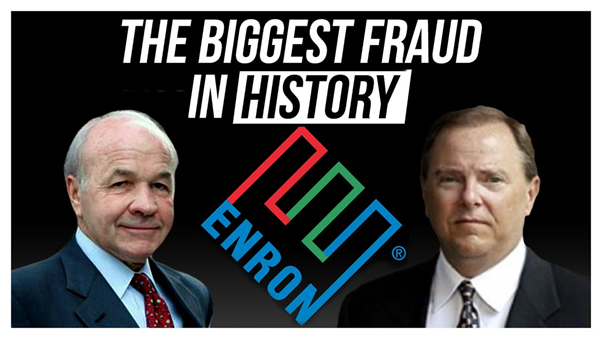
Would I Lie to You? If I’m a CEO, Probably! A History of Corporate Irresponsibility
Image: https://unsplash.com/@anniespratt
By Edward Donne

Corporate Fraud: An example
Enron. “The darling of Wall Street.” Voted “America’s most innovative company for six consecutive years between 1996 and 2001.” What seemed to be one of the most lucrative companies to invest in during the 1990s. And yet, all built on a lie. That’s right, corrupt CEOs Kenneth Lay (left) and Jeffrey Skilling (right) “hid over $74 billion of debt accumulated by Enron”, all for their own financial gain. Thousands of workers lost their source of jobs, health insurance, and some even their pensions. And for what? Greedy social elites endlessly chasing greater profit margins. How did they do it? Very simple. “They would build an asset, such as a power plant, and immediately claim the projected profits on the books, without making one dime.”
The BP Oil Spill (2010)
“The Gulf of Mexico, April 20th 2010.” “An explosion on a BP oil rig sparks an 87 day stream of crude oil cascading uncontrollably into the gulf of Mexico, the total load being 130 million gallons.” This spill also “caused the deaths of 11 oil rig workers and the injury of 17 more.” The cause? “Sections of the oil rig being desperate need of repair.” This environmental catastrophe is just one more example of how capitalism, if left unchecked and unpoliced, will have a detrimental effect on the wildlife and ultimately people of the world. This poses an important question : Can capitalism be sustained as a way of life in the modern world? As more and more high profile cases of corporate fraud and irresponsibility come to light, climate change causing unprecedented amounts of damage and the gap between the wealthiest and the poorest becomes increasingly pronounced, many sociologists argue that this is not the case. Even as far back as the industrial revolution, sociologists such as Karl Marx were already voicing their concerns about the negative characteristics of capitalism, and the class system it has entrenched. Looking forward 150 years, and globalisation has allowed the largest corporations to, themselves, globalise and assert their dominance over markets across all the continents of the world. Small businesses simply cannot compete with the might of these TNCs (transnational corporations) that are being allowed to monopolise many markets by the World Trade Centre. The introduction of free trade zones (FTZs) are a prime example of this, as “TNCs can avoid the hefty tariffs imposed by governments to bring certain goods across their borders.” Tax breaks often play a key role in trade deals between TNCs and governments, especially when importing raw materials for production are concerned.
Social Movements
The solution to all of this? The social movements that seek to hold CEOs accountable for any malpractice or neglect that they part-take in. “Social movements represent change-orientated struggles by groups who have unequal access to power or who oppose the status quo.” As we have seen from the case studies from earlier, if left unchecked and unpoliced TNCs will continue to exploit both the people who work for them, and the loopholes in the rather relaxed laws concerning financial fair play and the safety of their workers, as both case studies have very aptly illustrated. Traditionally, most have used tactics such as demonstrations and protests in order to apply public pressure on corporations to bring about change. I urge you to remain peaceful at any which you choose to attend! But more recently, tactics which involves altering their campaigns to work with shareholders and CEOs have become much more effective. But how can you, the readers, the most important advocators for change, get involved with these social movements, and make the world a more sustainable and safer place for workers? The answer is very simple. Most social movements are non-government organisations (NGOs), such as the Guild Movement, and are looking for new members on a constant basis. The Guild Movement is a group that “calls for greater control for workers where working conditions are concerned, which has operated in the UK since 1906.” I urge you to all do what you can to hold these large-scale fraudsters accountable for the hurt they cause honest people!

0 Comments